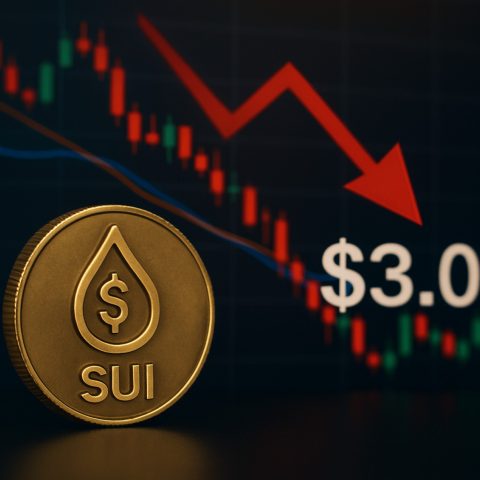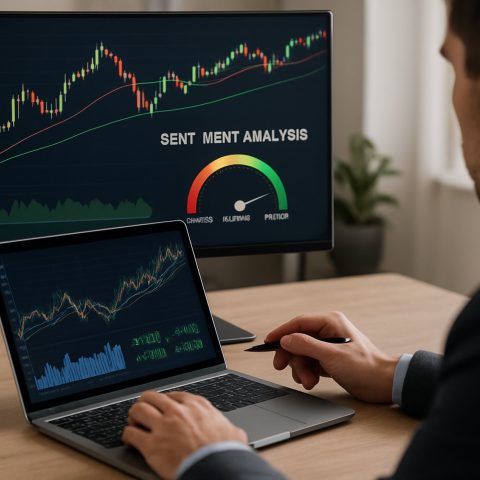- Stock futures are experiencing a decline due to new tariffs imposed by President Trump.
- Investor anxiety is escalating, leading to widespread sell-offs across multiple sectors.
- Heightened trade relations concerns could potentially hinder economic growth and market performance.
- Cautious investment strategies are recommended to navigate the current market volatility.
- Investors are considering safe-haven assets to protect their portfolios from market declines.
- Staying informed and aligning investment decisions with risk tolerance is crucial during this uncertain period.
- Trade tensions highlight the importance of vigilance and adaptability in investment practices.
Investors are holding their breath as stock futures dipped on Monday morning, sending shockwaves through global markets. Tensions are escalating following President Trump’s latest tariffs on goods from China, Canada, and Mexico, sparking widespread anxiety.
The ripple effects of these tariffs are undeniable. Traders everywhere are feeling the heat, leading to a not-so-pleasant sell-off that’s affecting various sectors. Concerns over trade relations have grown, with many analysts voicing fears that this escalating feud could hinder economic growth and stunt market performance.
As uncertainties loom large, experts suggest that cautious strategies might be the way to navigate these turbulent waters. Savvy investors are looking closely at potential safe havens—assets that could weather the storm and protect against broader market declines.
This situation isn’t just about numbers; it’s about your financial future. With the potential for ongoing volatility, it’s crucial for everyone to stay informed and make decisions that align with their risk tolerance.
Takeaway: The current trade tensions underscore the importance of vigilance in investing. As markets dance to the tune of political moves, keeping a close eye on developments can make all the difference in managing your portfolio during these uncertain times. Stay tuned and stay smart!
Market Mayhem: Tariff Turmoil Impacting Investors
As we delve deeper into the current market scenario influenced by fresh tariffs imposed by President Trump, it’s essential to explore new trends and insights that affect investors globally. This situation has sparked debates not only about market stability but also about potential long-term changes in trading strategies.
Market Forecasts:
Recent analyses predict that if tariff tensions continue, we could see a significant downturn in global market indices over the next quarter. Analysts forecast a potential drop of 5% to 10% if retaliatory measures escalate, particularly affecting sectors like technology and manufacturing.
Features and Innovations:
In response to the increased market volatility, some trading platforms are integrating advanced algorithms to help investors navigate through turbulent times. Features like real-time risk assessment tools and predictive analytics can assist traders in making informed decisions swiftly.
Use Cases:
Investors are now utilizing diversification strategies by reallocating their assets into commodities, such as gold and silver, which historically perform well during economic downturns. This shift showcases a practical approach to hedging against inflation caused by tariffs.
Important Related Questions:
1. What are the potential long-term impacts of trade tariffs on the stock market?
– Long-term impacts could include a sustained decrease in investor confidence, leading to lower capital investments and potential recessions in affected industries. Sectors heavily reliant on imports may see profit margins shrink significantly.
2. How can investors protect their portfolios during turbulent market conditions?
– Investors can explore diversifying their portfolios by investing in defensive stocks, commodities, and bonds. Utilizing stop-loss orders and setting risk thresholds can also help mitigate potential losses in a volatile market.
3. What sectors are most vulnerable to ongoing trade tensions?
– Sectors such as technology, automotive, and retail are particularly vulnerable due to their dependence on international supply chains. Any disruption in these chains caused by tariffs could result in increased costs and reduced profitability.
Pricing Trends:
Tariff-related price increases are expected in consumer goods, which could affect inflation rates. This change in pricing dynamics means that investors should closely monitor inflation metrics as they could influence central bank policies and interest rates in the near future.
Security Aspects:
As investors seek safe havens, the demand for more secure investments could increase the appeal of government bonds and precious metals. However, this shift may also lead to a decrease in the stock market’s liquidity as more funds are redirected.
Suggested Resources:
For more insights and updates on how tariffs and trade developments are shaping the market, visit MarketWatch.










